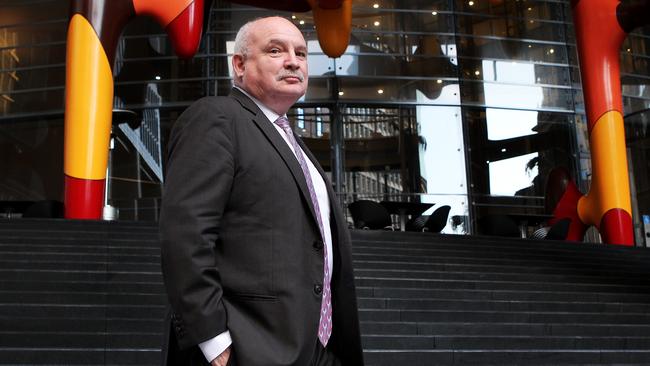Oil Search hunts for new chief as Botten calls time
One of corporate Australia’s longest-serving chief executives, Oil Search’s Peter Botten, is set to bow out.

One of corporate Australia’s longest-serving chief executives, Oil Search’s Peter Botten, is set to bow out, with the Papua New Guinea-focused gas producer close to identifying his successor.
After Mr Botten’s 25 years in the top job, Oil Search chairman Rick Lee told shareholders the board was “well advanced” in the search for his replacement and had also started a management reorganisation and corporate restructure to deliver on its growth plans.
Mr Botten has indicated a preference to remain company boss through to the sign-off next year of its PNG expansion and Alaskan oil project, although it is unclear if the board will wait the best part of a year to install a new leader.
“The board is well advanced on managing the succession plan for Peter Botten, who has led Oil Search very successfully for more than 25 years,” Mr Lee said at its annual general meeting in Port Moresby yesterday. “The board will keep shareholders fully informed as this process progresses.”
After a quarter century in charge, the issue of succession planning looms both as an opportunity to refresh and strengthen the company’s strategy but also a risk given the British-born executive’s deep links with the PNG government, local communities and international joint venture partners.
“Oil Search is a company far more dependant on its chief executive than its peers, making succession planning a big conundrum for the Oil Search board,” Credit Suisse analyst Saul Kavonic told The Weekend Australian.
While his looming departure is now common knowledge among investors, there remains concern that potential suitors may be looking to dust off their takeover playbook, particularly once the company has de-risked its future plans by signing off final investment decisions next year.
“Given Mr Botten’s cornerstone role at Oil Search, his departure could present a negative share price catalyst in our view, and could provide the opportune moment for an acquirer to pounce, reinforcing our thesis that Oil Search is more a takeover candidate than ever before,” Mr Kavonic said.
Mr Botten was central to rebutting an unsolicited $11.6 billion bid from rival Woodside Petroleum in 2015, with the Perth-based producer walking away after the Oil Search board rejected its approach.
Woodside may still take a look at the PNG producer, along with Chinese buyers and French energy giant Total, according to Credit Suisse.
Oil Search, owner of a 29 per cent stake in PNG LNG and 22 per cent share of the Papua LNG venture, has been driving its much larger project partners, ExxonMobil and Total, to pursue cost-effective, co-operative and rapid development of fields.
The companies plan to double LNG production from PNG to meet demand from Asian buyers. Three new export processing trains are to be added to the existing Exxon, Oil Search and Santos-owned PNG LNG plant near Port Moresby to produce an extra eight million tonnes a year.
While Oil Search struck a $16bn agreement last month with the PNG government to expand LNG, the deal has also reignited tensions among its political leaders over concern the Pacific nation failed to negotiate sufficiently attractive terms for the state.
An emerging plot to oust Prime Minister Peter O’Neill after seven years in power remains in the balance. The chief gripe against Mr O’Neill relates to a controversial UBS loan struck in 2014 that allowed the PNG government to buy a stake in Oil Search.
Mr O’Neill defended the government’s role in the UBS issue this week, but risks have been raised that the gas agreement may be torn up should a change of leadership transpire when parliament resumes at the end of the month.
State-backed oil company Kumul Petroleum will be required to tip in about $US1.4bn ($2bn) as part of the expansion project, with the pact also including a domestic gas market obligation to develop local industry and provide sufficient local power generation.
The political spotlight on the deal may also dampen Oil Search’s hopes of agreeing fiscal terms this quarter for the P’nyang gas field development, which forms part of the overall expansion led by energy giants ExxonMobil and Total.
Mr Lee described last month’s gas agreement negotiations as “tough”, while Mr Botten last week said it was the most difficult deal he had worked on during his career.

